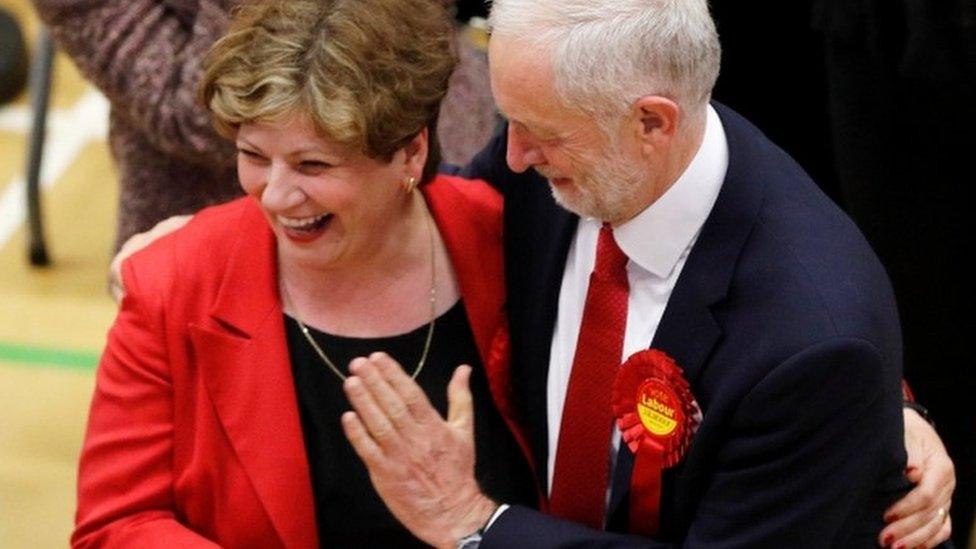General election 2019: A simple guide to the DUP
- Published
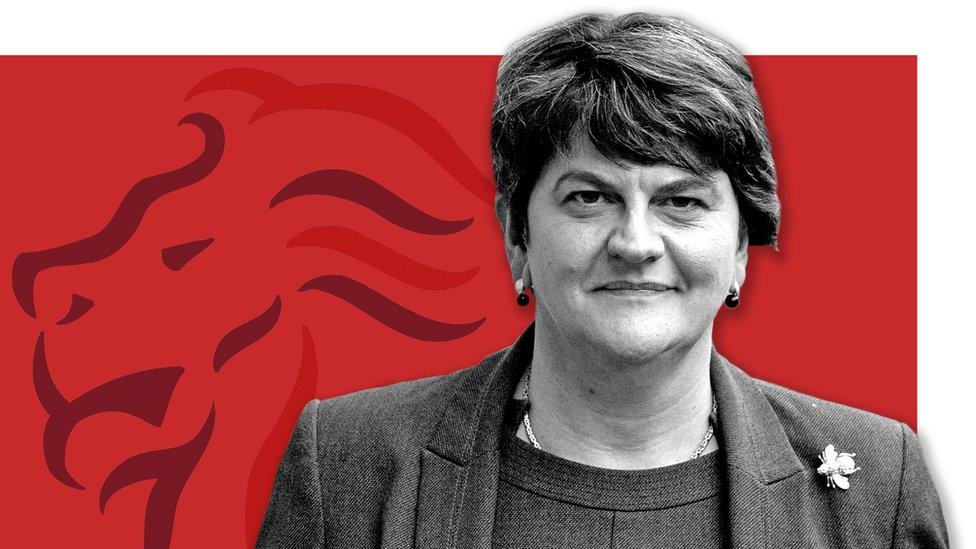
The Democratic Unionist Party (DUP) was the fifth biggest party in Westminster after the Conservatives, Labour, SNP and Lib Dems.
It had 10 MPs out of 650 seats when Parliament dissolved on 6 November.
It also has 28 MLAs (members of the Northern Ireland Assembly) and one MEP.
Who is the leader?
Since 2015 the party has been led by Arlene Foster, who represents Fermanagh and South Tyrone in the Northern Ireland Assembly.
Her leadership has been marred by controversy over a green energy financial scandal known as the Renewable Heat Incentive, which saw the power-sharing executive collapse in 2017, causing a snap election in Stormont, home of the devolved government.
Northern Ireland is still without a government - but the DUP has found itself in a position to influence political events across the entire United Kingdom.
Five key election pledges
The DUP's main manifesto pledges include:
Leaving the EU as one United Kingdom, with no border in the Irish Sea
A 12-point plan to "get Northern Ireland moving again"
Infrastructure investment that delivers for the whole UK
Keeping Jeremy Corbyn out of Downing Street
Work with other parties to secure a balanced deal to restore Stormont and remain willing to set up an executive immediately
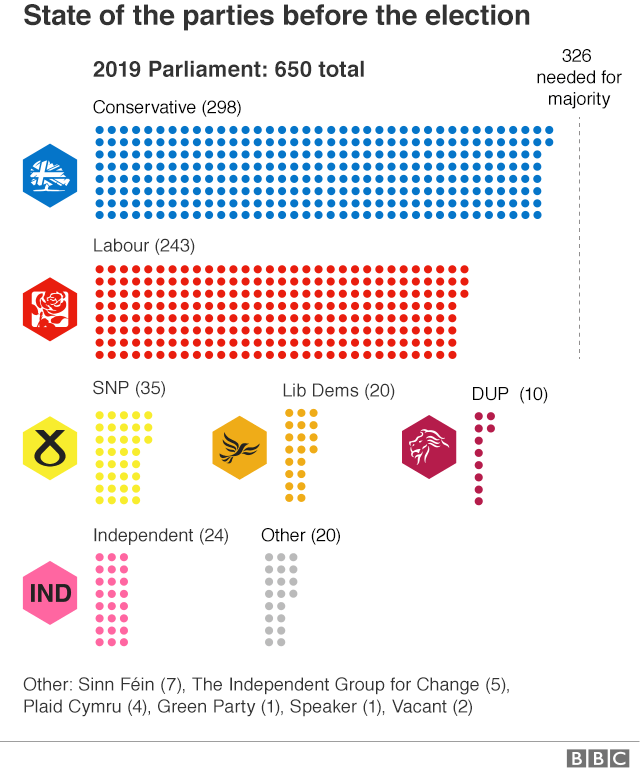

Where does it stand on Brexit?
The DUP was a wholehearted supporter of Brexit and was heavily involved in the Leave campaign.
The party has insisted Northern Ireland must leave the EU completely along with the rest of the UK - the DUP will not stand for any arrangement that physically sets NI apart from Great Britain.
It is opposing Boris Johnson's revised Brexit deal because it includes a different type of special arrangement for Northern Ireland, and the DUP says it cannot back a plan that threatens the union.
The DUP has called for a "sensible deal" to be renegotiated by the UK and the EU.
Northern Ireland voted to remain in the EU by a margin of 56% to 44%.
What else does it stand for?
Basically, it is pro-union (UK, not Europe) and socially conservative.
In 2017, party leader Arlene Foster said the union would be the DUP's "guiding star".
Unlike nationalists, who want to see the Irish border removed and rule from Westminster ended, unionists want the link with Britain preserved.
On social issues it is deeply conservative, opposing same-sex marriage and abortion.
It advocated against the law changing in Northern Ireland in October, and tried to get the assembly recalled in a last-ditch bid to stop the reforms taking effect.
DUP policy in a tweet
Allow X content?
This article contains content provided by X. We ask for your permission before anything is loaded, as they may be using cookies and other technologies. You may want to read X’s cookie policy, external and privacy policy, external before accepting. To view this content choose ‘accept and continue’.

What is the DUP's history?
It started as a one-man-band, with the Reverend Ian Paisley, a fundamentalist Protestant preacher, at its helm.
He founded the party in 1971 in opposition to what he saw as the increasingly liberal approach of the Ulster Unionists - the party of the political establishment since Northern Ireland was founded in 1921.
For most of his political career, Ian Paisley saw the prospect of devolved power sharing with his political enemies as a path to Irish unity.
He set his face against successive attempts to cobble together an agreement between nationalists and unionists, knowing that simply by saying no he could make political gains.
By 2005 the DUP, which started as the party of resistance to any hint of accommodation, had displaced the Ulster Unionists and powersharing with Sinn Féin followed in 2007, as Ian Paisley became unlikely friends with former IRA commander and Sinn Féin politician Martin McGuinness.
What does confidence and supply mean?
After the 2017 election, the Conservatives lost their overall majority in the general election and needed to seek an alliance with the DUP to get the 326 votes required to pass legislation in a hung Parliament.
The two parties signed a confidence-and-supply pact, meaning the DUP would support Number 10 on key votes, in exchange for an extra £1bn in funding for Northern Ireland.
The deal was to last for two years and then be renewed - but at times its conditions were tested because the DUP voted against the government on crucial votes to express its opposition to the withdrawal agreement.
What about the other parties?
- Published9 June 2017
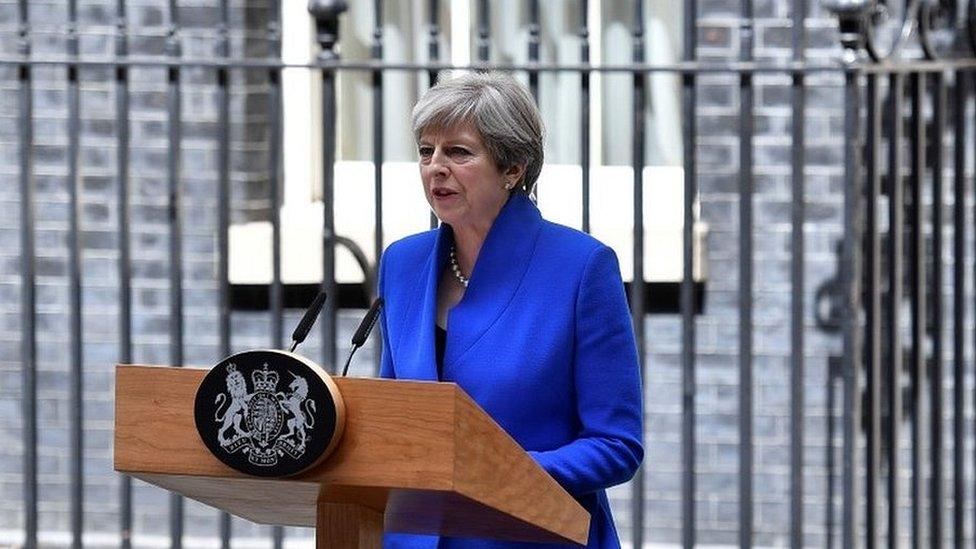
- Published10 June 2017
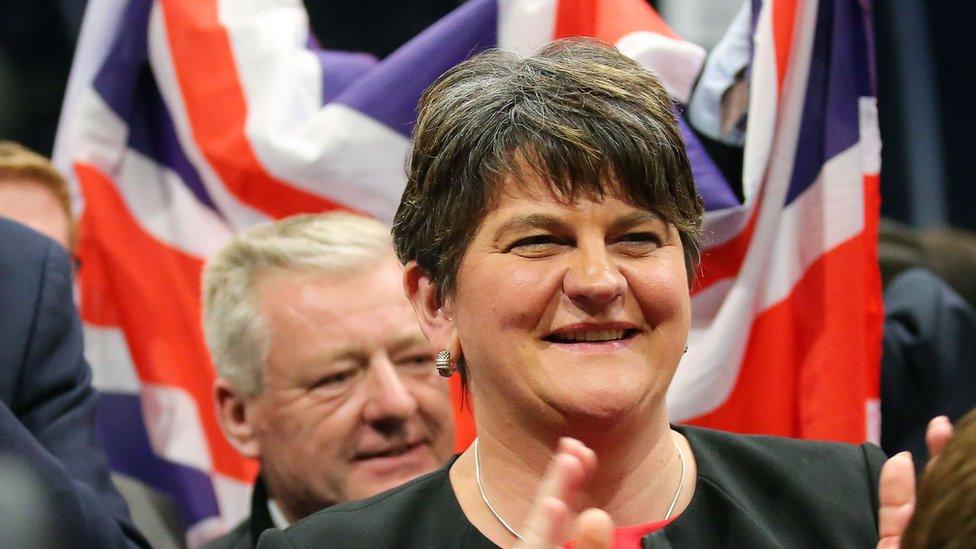
- Published9 June 2017
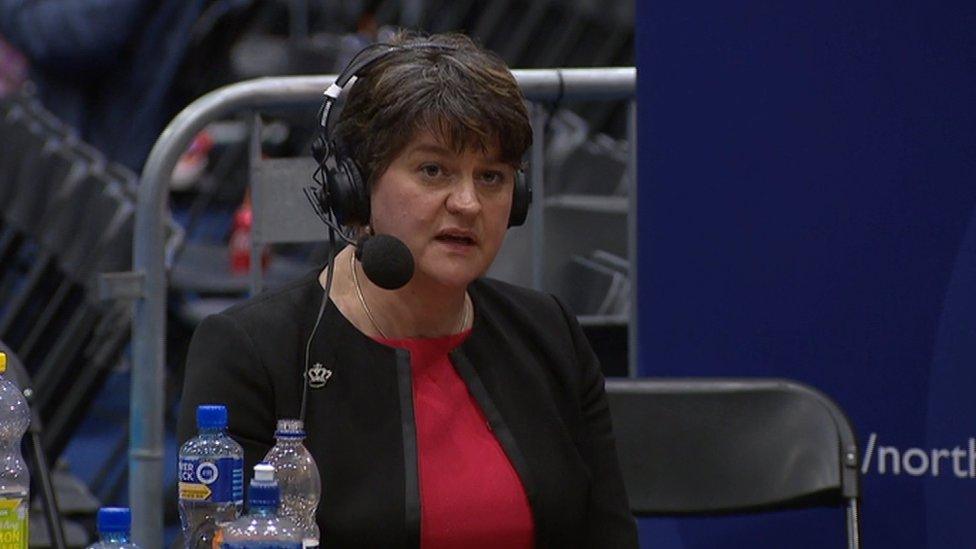
- Published9 June 2017
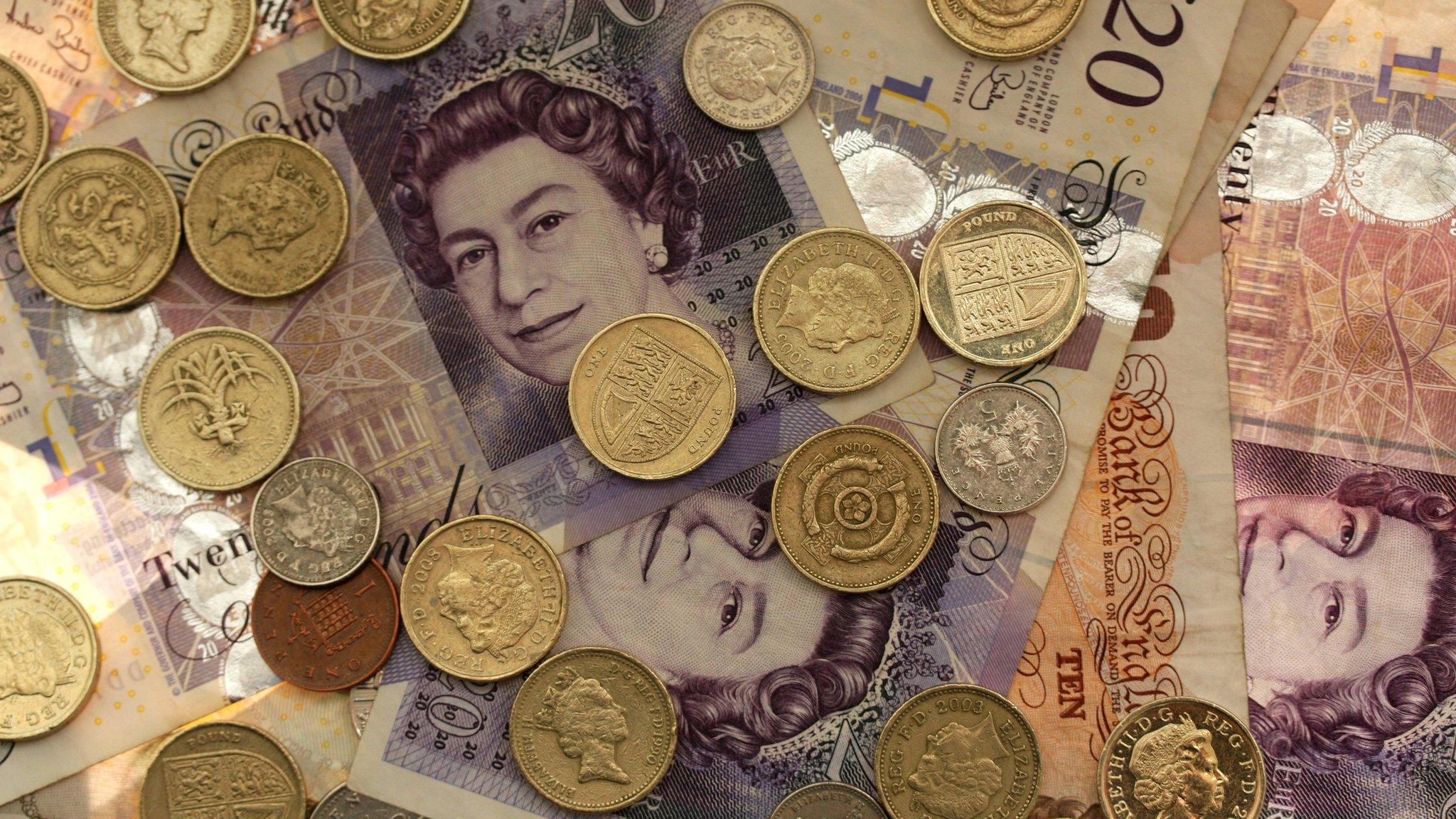
- Published9 June 2017
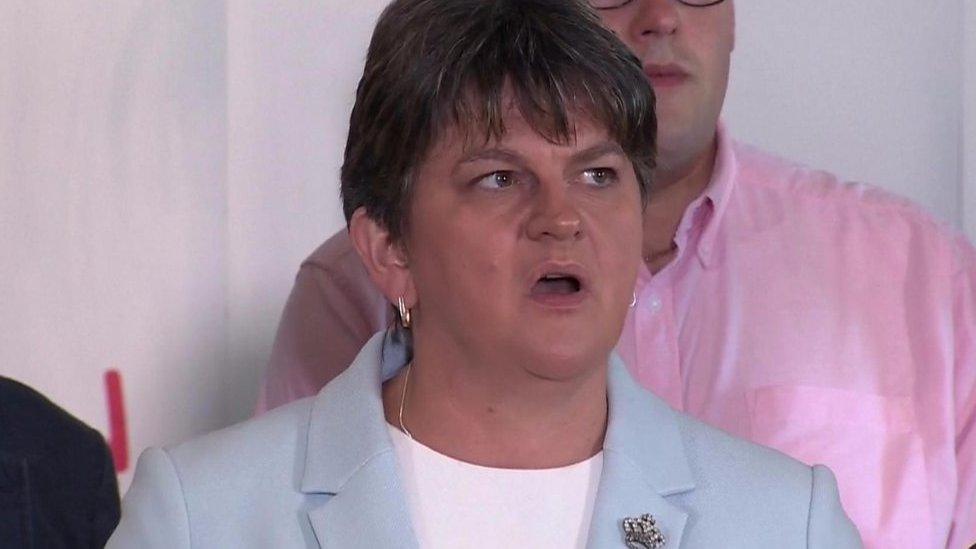
- Published9 June 2017
